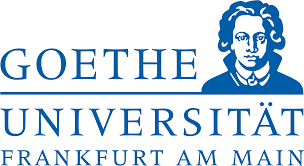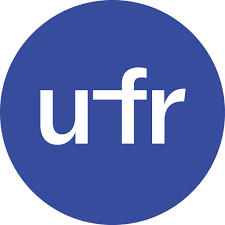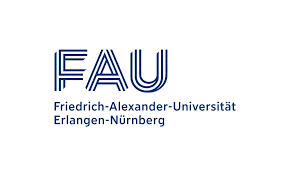Step 1 - Find your Study Program

Christian Albrecht University of Kiel
Kiel
Medical Life Sciences
Subjects: Healthcare;Life Sciences
M.Sc. | Master of Science
Course description
Translational research, often described as moving discoveries "from bench to bedside," is rapidly expanding. The need for experts in this field is growing swiftly. Scientific findings in cell and molecular biology or biochemistry must be converted into medical applications before they can be used in disease prevention and therapy. This process is at the heart of Medical Life Sciences. Studying Medical Life Sciences involves understanding how to translate scientific results into practical medical solutions. It requires a solid foundation in biomedical knowledge. Additionally, learning in an international environment enriches the experience, offering more than just scientific expertise. The study subjects in this field include cell biology, molecular biology, and biochemistry. The study programs are designed to equip students with the skills needed to bridge the gap between laboratory research and clinical practice. By focusing on these areas, students gain the knowledge and skills necessary to contribute to advancements in medical science. This approach ensures that new scientific discoveries can be effectively used to improve health outcomes. In summary, Medical Life Sciences is about turning scientific research into real-world medical applications. It’s a field that combines rigorous scientific study with practical medical training, all within a global context.
Program Information
| Study Location | Kiel |
| Start Semester | Summer |
| Study Form | Full-time |
| Study Type | Postgraduate |
| Teaching Language | English |
| Dual | No |
| Remote | No |
| Application Fee non-EU | 55 EUR |
| Study Length | 4 Semesters |
| Tuition Fees per Semester | No Tuition Fee |
| Cost per Semester | 250 EUR |
Step 2 - Check Application Requirements
Are you eligible for studying in Germany?
Take the StudyBuddy Eligibility Quiz and find out whether you meet the criteria to enter a German university directly.
Application Requirements
Language Requirements
| CEFR | No information |
| IELTS | No information |
| Cambridge (CAE) | No information |
| TOEFL IBT | No information |
Medical Life Sciences is taught in English. All examinations, including the master's thesis, are taken in English. Therefore, very good English skills are required for the course. According to the study qualification statutes, the following must be present for the aptitude assessment process: Knowledge of English according to the Common European Framework of Reference for Languages (CEFR) at least level C1: The knowledge must be proven by successfully passing a language test in accordance with Section 4 Paragraph 3 of the Medical Life Sciences Examination Regulations.
Qualification Requirements
The prerequisite for entry to the Master's program in Medical Life Sciences is a completed bachelor's degree in biology, biochemistry, molecular medicine, (molecular) biotechnology or a comparable discipline with a standard period of study of six semesters and 180 credit points or an equivalent first professional qualification or a completed degree in human medicine or a completed dental degree and Knowledge of biology that corresponds to the level of a first professional university degree in life science subjects Basic skills for carrying out laboratory work that correspond to the level of a first professional university degree in life science subjects Knowledge of vertebrate/human physiology that corresponds in type and scope to the knowledge imparted in bachelor's degree programs in the life sciences and in any case, successfully completing the aptitude assessment process for Medical Life Sciences.
Document Requirements
Application form: The application form can be dowloaded from the website during application periods only. If you fill it in electronically, make sure your entries have been saved before you send the form. Empty forms cannot be considered for assessment. If you fill in the form manually and scan it, entries need to be legible. It is not advisable to use photographs, watch your file size! Partly filled-in application forms or illegible entries lead to applications not being considered. Motivation letter: Explain your motivation in English and to the point, following letter writing conventions (we do request a letter, i.e. the format of a letter with ALL its parts needs to be there for the letter to be acceptable). Explain why you want to study Medical Life Sciences and why you think you would be a successful student in your own words. Texts copied from the internet or fellow-applicants with adaptations are not acceptable. The letter must not exceed two A-4 pages and use the following specifications: font Arial 11 pt, line spacing 15 pt, all margins 2 cm. CV: Provide a current CV with the following specifics: Font = Arial, font size = 11 pt, line spacing = 15 pt, all margins 2 cm University degree certificate(s) and transcripts: Enclose your Bachelor certificate and the transcripts for your entire university career; if you have not yet completed your Bachelor's studies, you need to include all transcripts up to date. If you have already completed a Master's degree or have done an additional Bachelor's degree, we need all the transcripts and your certificate as well. Transcripts for degree courses you have not finished need to be included, too. Languages accepted for transcripts, physiology course descriptions and certificates are German, English, Russian, French, Dutch and Spanish (the four latter ones are in order for the application, BUT be prepared to hand in a certified translation into German or English for enrolment should you be accepted). Course description vertebrate/human physiology: Physiology skills need to be proven. Hand in an official course description issued by your university detailing scope, workload and the topics of the vertebrate physiology course you have passed (no other course descriptions). An entry on a transcript is not enough. Neither is plant, developmental or cell physiology a substitute for vertebrate/human physiology. Self-written descriptions are not accepted. Not including a vertebrate physiology course description leads to the application not being considered.
Application Process
| Acceptance Interview | No |
| Acceptance local admission restrictions | Not restricted |
| Application |
directly at the University, uni-assist |
Step 3 - Get studying insights
Your Free StudyBuddy Checklist
Want to simplify your journey to Germany?
-
Interactive step-by-step checklist
-
Helpful explanations and tips along the way
-
Designed for internationals like you


Free Webinar
How to Apply and Get Admission to a German University
Get ready to study in Germany!
January 16th, 2025
-
Learn how to find your ideal program
-
Step-by-step application guide
-
Tips and tricks to get admission
Step 4 – Apply for a Visa

German Visa Guide
Your tailored German visa application guide
Be Prepared for Your Visa Appointment
Value Package
-
New: includes our free German Bank Account. Automatically connected to your Blocked Account
-
German Blocked Account accepted by all German authorities
-
Award-winning public or private health insurance coverage4
-
Free Travel Health Insurance worth up to €953
-
Up to €90 cashback with your personalized health insurance2
-
Instant Blocked Amount confirmation once funds are received
-
24hr customer response time
-
All-in-One app for life in Germany
-
ADDITIONAL FREE BENEFITS
-
Free International Student ID Card (Digital ISIC) worth up to €18*
-
Free eBooks and resources for life and studies in Germany
-
In-app access to top-tier accommodation for internationals
-
Cost Breakdown
-
Monthly fee: Only €5
-
Blocked Account set-up fee: €0 (€69 cashback)1








